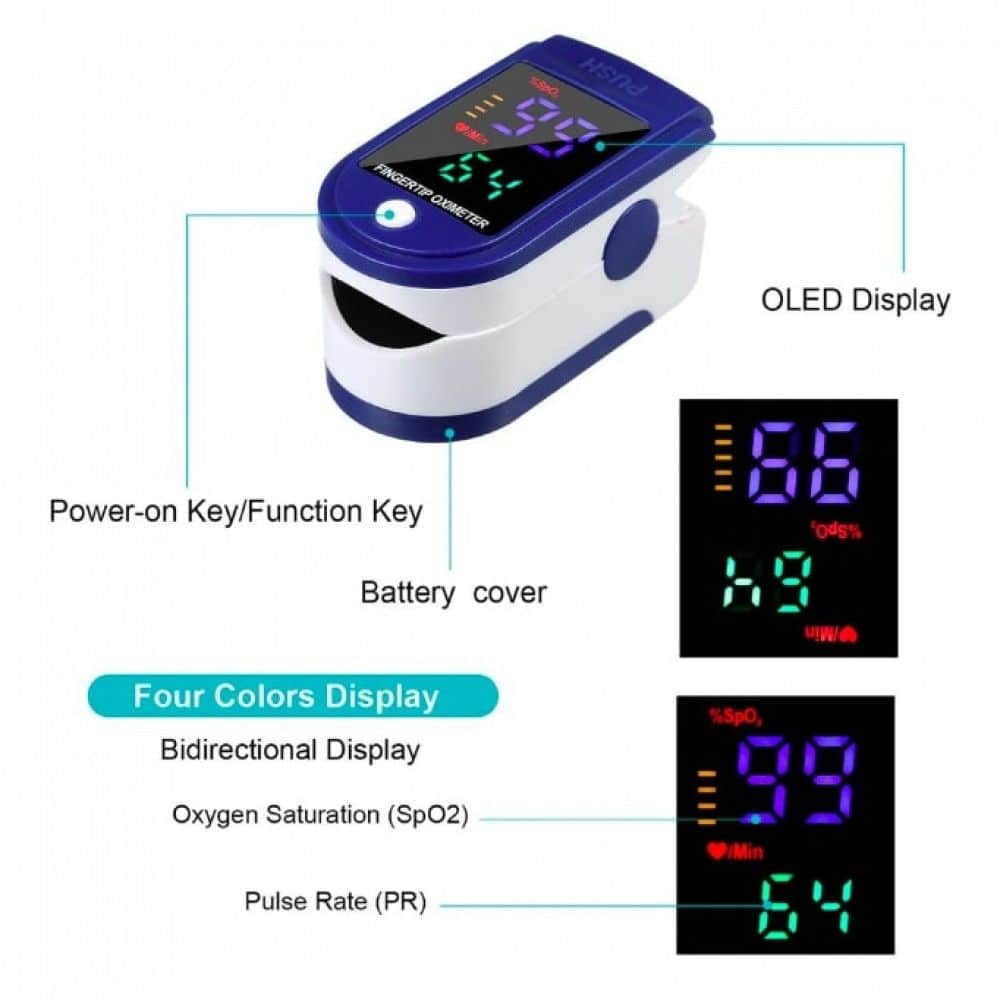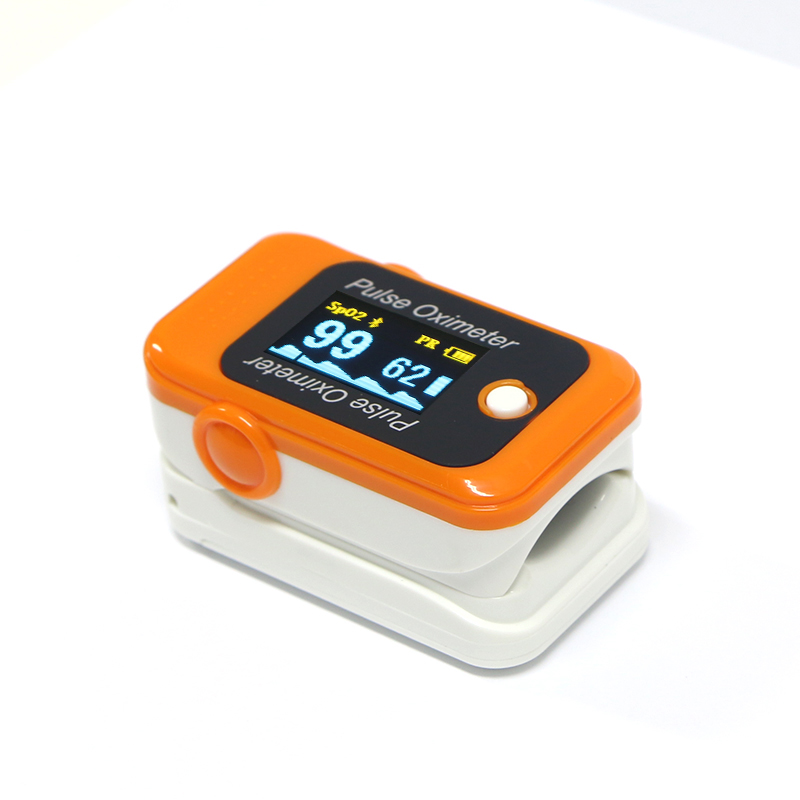Pulse Oximeter
The NOWRPM pulse oximeter delivers real-time oxygen and pulse readings directly to your care team, giving them a clearer view of your health between appointments and helping guide more personalized care.
Pulse Oximeter FDA Approval.pdf
Stay Ahead of Risks
Monitor Oxygen & Heart Rate Anytime
Track real-time SpO₂ levels and pulse rate through the pulse oximeter, ensuring patients stay connected to their vital health data wherever they are.
Empower Patient-Centered Care
Provide patients with actionable insights to stay engaged, motivated, and informed about their oxygen and heart health.
Detect Health Risks Early
Receive accurate readings that help identify drops in oxygen levels or abnormal heart rates before they escalate into serious health concerns.
Care That Fits Patient’s Lifestyle
Support recovery, chronic care, and daily monitoring at home with flexible use, adapting to each patient’s schedule and comfort.
Know What?
Your Guide to Pulse Oximeter Success at Home
Using your pulse oximeter the right way helps you get the most accurate readings. These numbers are important because they give your doctor the best picture of your oxygen levels and heart health. With a little practice, you’ll feel confident using your device each day.
1. Keep Your Hands Comfortable
Make sure your hands are clean, dry, and at a normal temperature. If your hands are too cold, too warm, or damp, it can confuse the device. Simply warming or drying your hands before use makes a big difference.
2. Sit Still During the Test
Rest your hand on a table or your lap and try not to move while the oximeter is working. Even small movements can make the reading jump around. Staying calm and steady gives you the most reliable results.
3. Choose the Best Finger
For the clearest reading, pick a finger without nail polish, artificial nails, or tattoos. If one finger doesn’t work well, try another — sometimes even your toe works just fine.
Pulse Oximeter User Manuals
Need help getting started with your pulse oximeter device? Download the official user manuals for Nowrpm-supported monitors below.

iPulse Oximeter Manual
Download Manual for your reference

BerryMed Pulse Oximeter
Download Manual for your reference
Smarter Care Starts with AI—And Scales with Nowrpm.
Beyond AI reminders, Nowrpm streamlines onboarding, reporting, and EHR integration—reducing workload and improving results.

Patient Setup
We handle identification, outreach, and onboarding. Your team focuses on care, not cold calls.

Virtual Assistant
Motivational nudges, friendly reminders, and milestone recognition keep patients on track.

Live Reporting
See real-time patient vitals and engagement patterns from one secure dashboard.

Smart Monitoring
Let Iris handle the daily check-ins. Your team gets notified only when something truly matters.

EHR Integration
Data flows directly into your systems—securely and seamlessly—giving clinicians a complete care picture.
Trust the Process
The Nowrpm Process
Seamless Patient Enrollment
Let us handle the heavy lifting. Our care coordination team works with your EHR to identify RPM-eligible patients, verify insurance coverage, secure prior authorizations, collect patient consent, and manage end-to-end onboarding. Devices arrive at your patients’ doorsteps pre-configured—ready to use, right out of the box.
Boost Monitoring Compliance
Consistency is key in remote care—and we help make it effortless. Nowrpm’s virtual health assistant checks in with patients, encourages routine use, and flags missed readings. When results fall outside custom thresholds, our clinical team alerts your staff for timely follow-up, helping prevent avoidable escalations.
Simplified Clinical Documentation
No more chasing down notes. Our clinical team enters detailed, time-stamped monitoring logs directly into your EMR—aligned to your workflow. Automated tracking tools make it easy to log RPM time, access patient history, and generate claims-ready reports.
Faster, Cleaner Billing
With built-in billing tools and clear visibility into CPT code activity, practices can easily prepare and submit claims. You stay audit-ready while we streamline documentation and keep your reimbursement process moving.
No Wi-Fi. No Apps. Just Works.
At Nowrpm, simplicity is built in. Our devices connect automatically using built-in cellular service—no smartphone, Bluetooth, or home Wi-Fi required.
That means no pairing, no setup stress, and no tech barriers. Just reliable, ready-to-use tools that make remote monitoring easy for every patient, right out of the box.
Fitbit Tracker
Weight Scale
Blood Glucose Monitor
Blood Pressure Cuff
Testimonial
Testimonial Grid
Need Help?
Frequently Asked Questions
What is a pulse oximeter and why should I use it?
A pulse oximeter is a small device that clips onto your finger to measure the oxygen level in your blood and your pulse (heart rate). It helps you and your doctor keep track of your health, especially if you have breathing or heart conditions.
How often should I check my oxygen levels at home?
Your doctor may give you a schedule, but many people check once or twice a day, or when they feel short of breath. The key is to check regularly and write down your numbers so you can notice any changes.
What number is considered “normal” on a pulse oximeter?
Most healthy people will see oxygen levels between 95% and 100%. If your reading is consistently lower, or if it drops suddenly, call your doctor right away.
Can nail polish or cold fingers affect the reading?
Yes. Dark nail polish, artificial nails, tattoos, or even very cold fingers can make the device less accurate. Try another finger, remove polish if you can, or warm your hands before testing.
Does it hurt to use a pulse oximeter?
Not at all! It simply clips gently onto your finger and uses light to measure oxygen. You won’t feel anything.
What should I do if I get a low reading?
Stay calm and sit down. Take a few deep breaths and test again. If your numbers stay low or you feel unwell, follow your doctor’s instructions — this may include calling your care team or going to the emergency room.
Ready to Revolutionize Your Remote Care?
Request a free demo and we’ll send you our remote monitoring devices—completely configured and ready to use.
Ready to learn more?
Contact Us
- Indianapolis, Indiana
- +1 317-613-7773
- info@NowRPM.com
